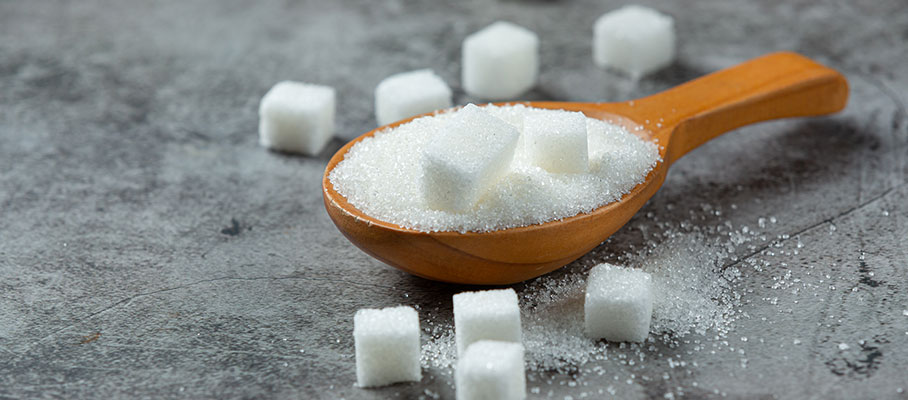Disease
Debunking Top 5 Myths around Diabetes
5932 Views
0

Diabetes is a chronic condition that leads to high blood sugar (or glucose), causing a plethora of symptoms and predisposing to various other health conditions such as high blood pressure, kidney disease, etc. While diabetes is highly prevalent among the Indian population with around 72 million people affected, there remains a huge information gap around this condition. Being aware of the authentic scientific facts helps one take the right steps towards diabetes management and delay complications.
Here we have provided science-based information on the top 5 myths around diabetes.
Myth: Once a diabetic always a diabetic
Fact: In the early stages, diabetes can almost be reversed if diet and exercise are taken care of, especially in young people. If your blood sugar is normal with no treatment, then the diabetes is considered to have gone away. Hence, you cannot say that once a diabetic always a diabetic. But remember that even when the blood sugars are controlled, the risk for diabetes always exists. The best thing is to keep following the lifestyle measures even after you have managed to get off the medicines.
Want to manage your diabetes well? Get your HbA1c test done regularly and track your blood sugar levels.
Myth: If you have a family history of diabetes, you will always develop it in the future.
Fact: Having a family history of diabetes has a strong correlation to developing diabetes, but other risk factors such as age, being overweight, how much physical activity you get, and how healthy your diet also play a role. Apparently, many people think that family history is the only risk factor for diabetes, but the fact is even people with no family history of diabetes can develop it, and people having family history but following a healthy lifestyle may not develop diabetes in their lifetimes.
Think you can be at risk of getting diabetes due to your family history? Follow a healthful routine and keep an eye on your blood sugar numbers.
Myth: People with diabetes need to eat special foods.
Fact: Not at all! A healthy diet plan for people with diabetes is usually the same as the principles of healthy eating for anyone. A healthy eating plan includes lots of fiber-rich, low-on-carb vegetables, less sugar, whole grains in place of refined grains, healthy fats, and an abundance of proteins. Fruits like mango and banana can be eaten too. Just that you need to be a bit vigilant of the amounts of foods you consume.
Do not blindly trust packaged foods with special “diabetes-friendly” claims. They may still impact your blood sugar levels badly, be more expensive, and/or contain sugar alcohols that can have a laxative effect. It is important to be watchful of how your food impacts your blood sugar levels. Book a post-meal sugar test and get tested at your doorsteps.
Myth: Eating too much sugar can cause diabetes.
Fact: Diabetes is a complex disease that occurs due to many underlying factors. Though consuming an excess of refined sugar along with other risk factors may increase your risk of getting diabetes, eating too much sugar isn’t a direct cause of diabetes (both type 1 and type 2 diabetes). In fact, (most of) the food we eat is converted to glucose which our body cells use as fuel for energy. A hormone called insulin unlocks our cells and lets glucose get inside. Diabetes occurs when your body fails to produce enough insulin or makes no insulin at all. This leads to an excess of blood sugar in the blood as it cannot enter the cells to be utilized.
Myth: I use a blood glucometer at home, so an HbA1c test isn’t needed.
Fact: Having a blood glucometer and tracking a constant eye at your blood sugar is no doubt an extremely important step towards better diabetes care. However, it is equally important to get your HbA1c test done. HbA1c stands for glycated hemoglobin and it helps measure the average blood sugar levels for the past 3 months.
Your glucometer will test your sugar values at a particular point in time and the type of meal you had will affect the results at large. But, HbA1c won’t be affected by a one-time binge or unhealthy meal, so it will give more reliable results that can help your doctor get better insights into your diabetes status.
You do not need to fast for a glycated hemoglobin test. Book your test right away.
Got more questions or doubts regarding diabetes? Let us know in the comments section below and we will apprise you with the expert answers in our next article. In the meantime, believe only in health experts and do not pay attention to just words of mouth that have no sound scientific reasons.
For all your lab test-related needs, explore Metropolis.
 Home Visit
Home Visit Upload
Upload














1701259759.webp)









 WhatsApp
WhatsApp